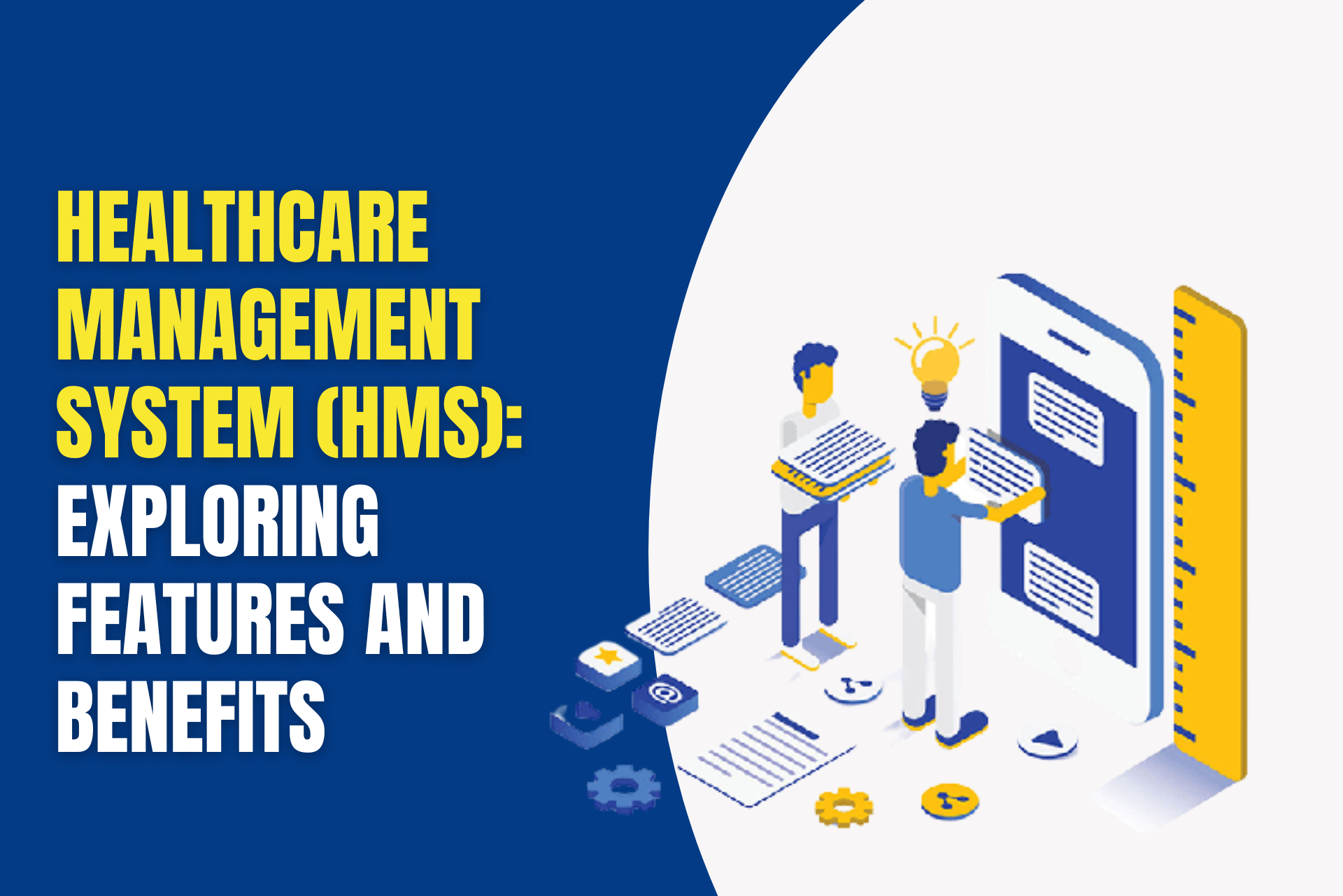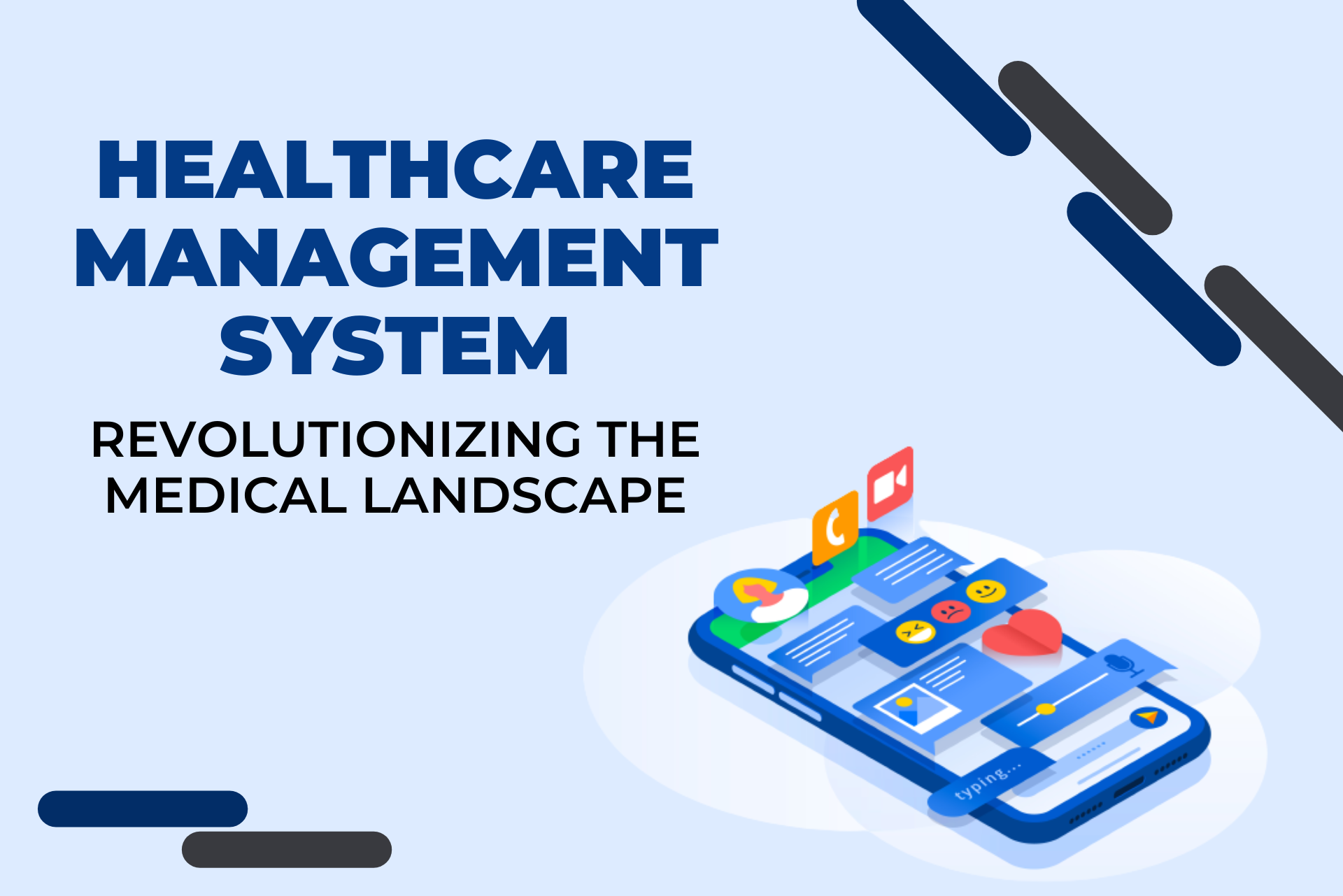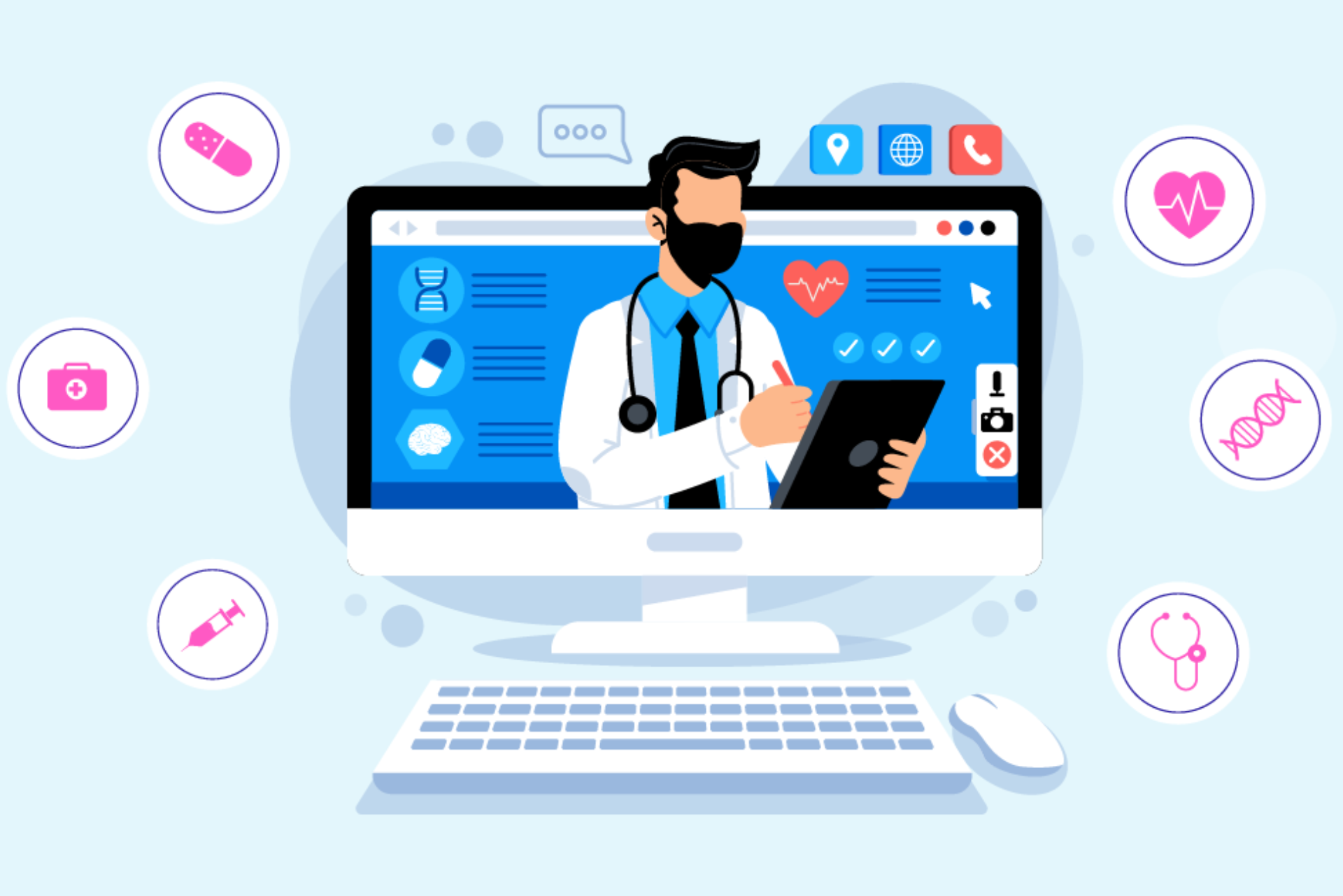Healthcare Management System (HMS): Exploring Features and Benefits
In the realm of modern healthcare, efficiency, accuracy, and seamless organization are paramount. This is precisely where a Healthcare Management System (HMS) comes into play. A comprehensive HMS is not just a software solution; it’s a revolution that elevates healthcare administration, patient care, and overall operational effectiveness. In this article, we delve into the intricate details of an HMS, exploring its remarkable features and the myriad benefits it brings to the healthcare landscape.
Understanding the Healthcare Management System
In simple terms, a healthcare management system functions as a cloud-based web framework for medical administration. It effectively registers and integrates data from every department to automate internal operations.
The healthcare management system software is designed to cover a wide range of tasks. These tasks include streamlining workflows for medical professionals, enhancing the patient experience, and addressing administrative costs and errors.
The HMS consolidates healthcare providers, patients, medical resources, laboratory findings, insurance data, medical billing, doctor appointments, and reports.
Imagine a healthcare system without a proper medical facility management system. It struggles with staff retention, provides subpar patient care, and lacks profitability. This scenario is far from ideal. However, with the appropriate HMS, you can rest assured that every task is being handled effectively.
Read more: Detailed Introduction of Hospital Management System (HMS)
Some recent stats and case studies
Rising Adoption of HMS:
According to a report by According to a report by Grand View Research, The global pediatric home healthcare market size was estimated at USD 35.6 billion in 2022 and is expected to grow at a compound annual growth rate (CAGR) of 7.86% from 2023 to 2030. This indicates the increasing adoption of HMS worldwide.
Impact on Efficiency:
According to a 2022 State of Healthcare Report published by HIMSS, 99% of U.S. health system leaders and 95% of their international counterparts recognize the global significance of investing in digital transformation in healthcare. The study reveals that 84% of participants report organizational mandates for digital health tool usage, while a substantial 79% independently choose to embrace these tools.
Patient Engagement:
HIT interventions have great potential for engaging hospitalised patients in their care. However, stronger interdisciplinary collaboration between health and IT researchers is needed for effective design and evaluation of HIT interventions.
Key Features of an HMS
-
Patient Information Management
An advanced HMS excels in maintaining exhaustive electronic health records (EHR) for patients. From medical history and treatment plans to medication allergies and lab results, every piece of vital patient information is securely stored and easily accessible. This centralized repository empowers medical practitioners with accurate insights, enabling informed decision-making.
-
Appointment Scheduling and Tracking
Gone are the days of manual appointment scheduling. With an HMS, patients can conveniently book appointments online, and healthcare providers can effortlessly manage their schedules. Automated reminders and real-time updates minimize no-shows and optimize clinic efficiency.
-
Billing and Financial Management
Managing the financial aspect of healthcare is intricate. An HMS simplifies this by automating billing, insurance claims, and payment processing. The system ensures transparency, reduces billing errors, and accelerates reimbursement cycles.
-
Inventory and Pharmacy Management
For healthcare facilities with pharmacies, an HMS offers features to manage inventory, stock levels, and prescription orders. This prevents medication shortages, eliminates manual tracking, and enhances patient safety.
-
Integration of Clinical Workflows
From diagnostic tests to treatment plans, an HMS seamlessly integrates various clinical workflows. This promotes collaboration among healthcare professionals, reduces duplication of efforts, and fosters a holistic approach to patient care.
Read more: Cost of Developing a Healthcare Mobile App in 2023
Benefits of Implementing an HMS
-
Enhanced Patient Care
At the heart of every healthcare system is the well-being of patients. An HMS optimizes clinical processes, reduces waiting times, and ensures accurate diagnosis and treatment. This leads to improved patient outcomes and heightened satisfaction.
-
Efficient Resource Management
Resource optimization is crucial in healthcare. An HMS optimizes resource allocation, minimizes wastage, and maximizes the utilization of healthcare equipment and facilities. This translates to cost savings and operational efficiency.
-
Data-Driven Decision Making
With a wealth of patient data stored securely, healthcare professionals can make informed decisions based on historical records, trends, and insights. This data-driven approach enhances diagnostic accuracy and treatment effectiveness.
-
Streamlined Administrative Tasks
The administrative burden in healthcare can be overwhelming. An HMS automates administrative tasks, such as appointment scheduling, billing, and record-keeping. This liberates staff to focus on patient care and strategic initiatives.
-
Compliance and Security
Healthcare data is sensitive and subject to regulatory compliance. An HMS ensures adherence to industry standards and data protection regulations. This shields both patients and healthcare providers from data breaches and legal complexities.
Read more: From Concept to Launch: Navigating the Healthcare App Development Journey
Hospital Management Software Development with BharatLogic
Curious about the process of developing a healthcare management system? Look no further than BharatLogic. We’re a dedicated team of perfectionists known for consistently exceeding our clients’ expectations. With years of substantial experience in health tech solutions, BharatLogic is your partner in overcoming challenges and creating exceptional healthcare management system software. Our approach revolves around placing humans at the centre, a quality highly appreciated by our clients. Yet, it’s our expertise, top-tier service, and personalized solutions that keep them returning.
Conclusion
In the fast-paced world of healthcare, the integration of technology is no longer optional—it’s imperative. A Healthcare Management System stands as a beacon of innovation, revolutionizing healthcare delivery, administration, and patient experiences. With features ranging from patient information management to streamlined administrative tasks, and benefits spanning enhanced patient care to data-driven decision-making, an HMS is the cornerstone of modern healthcare excellence.
In your journey towards optimized healthcare operations, implementing a robust HMS can be a game-changer. Embrace the power of technology to provide superior patient care, elevate resource management, and navigate the intricacies of healthcare administration with unprecedented efficiency.
FAQs about Hospital Management Software Development
Q1: What is a hospital management system (HMS)?
A1: A hospital management system (HMS) is a comprehensive software solution designed to streamline and automate various administrative and operational processes within a healthcare facility. It encompasses functions like patient data management, appointment scheduling, billing, inventory management, and more.
Q2: What are the key features of a hospital management system?
A2: A typical HMS includes features such as patient information management, appointment scheduling, billing and invoicing, electronic health records (EHR), inventory management, staff management, and reporting and analytics.
Q3: How does an HMS benefit healthcare facilities?
A3: An HMS brings numerous benefits, including improved patient care and satisfaction, increased operational efficiency, reduced paperwork and manual errors, better resource utilization, enhanced communication among staff, and data security and compliance.
Q4: Can an HMS be customized to a specific healthcare facility’s needs?
A4: Yes, many HMS providers offer customization options to tailor the software to the unique requirements of a healthcare facility. This ensures that the system aligns with the facility’s workflows and processes.
Q5: Is data security a concern with HMS?
A5: Data security is a critical consideration. Reputable HMS providers implement advanced security measures to protect patient data, comply with healthcare regulations (such as HIPAA), and ensure confidentiality.



